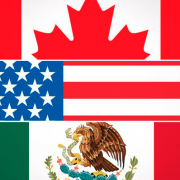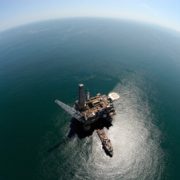
On July 20, 2016, the Mexican National Hydrocarbons Commission (CNH) published the drafts of the Bidding Terms and Production Sharing Contracts (PSC) for Round 2, Phase 1, for the Exploration and Extraction of Hydrocarbons in Shallow Waters. Below is a summary of the most important terms and conditions of the drafts of the bidding terms and the PSC.
Shallow Water Blocks
The CNH will bid 15 shallow water blocks, 4 of which are located in the Tampico-Misantla oil province, 1 in Veracruz and 10 in Cuencas del Sureste oil province.
Bidding Terms
-
Interested oil companies may participate in the bid of the 15 blocks, as individual bidders or in consortium.
-
Interested parties and bidders should not be in contact with any official from the CNH or the government that is in any manner related to the Round 2 bids, as bidding terms and contracts should not be subject to negotiation. However, any interested party should be able to make comments related to the bidding terms and contracts through the CNH’s webpage.
-
All stages of the bidding process will take place in Spanish, unless there is a specific provision that states the contrary.
-
Bidding and contract terms, excluding prequalification requirements, might be subject to change at any point in time before their final publication.
-
The bidding process will occur in the following stages: i) publication of bidding terms, ii) access to data rooms, iii) registration, iv) clarifications to the bidding terms, iv) prequalification, v) filing of proposals, vi) awarding of contracts and vii) execution of contracts.
-
The following payments will apply:
Registry fee – $750,000 MXP.
To have access to the data rooms – Information worth at least $8,000,000 MXP.
-
Bidding day is set for March 22, 2017. The chart below illustrates the timeline for the bidding process:
-
To prequalify for the bidding process companies have to demonstrate, among others, the following:
-
Legal origin of funds.
-
Organization Chart
-
Information regarding companies that have control of the company.
-
In case of SPVs, their corporate and business structure must be detailed, indicating who has significant control or influence. Also Tax Returns and Audited Financial Statements of those that incorporated the SPV, corresponding to the last 2 years, should be filed.
-
Some of the requirements will be waived for those that successfully prequalified to Round 1, Phases 1, 2 and 4, as long as they are still the same members of the successfully prequalified bidder in the past phases.
-
Technical requirements are as follows:
Experience as an operator in projects from 2011 to 2015 through (i) the participation in at least three projects of exploration and/or extraction of hydrocarbons, or (ii) capital investments in exploration and/or extraction projects that together amount at least USD $1 billion. . It is not required that the interested company participated as an operator in these projects.
2.Experience as (i) an operator in at least one project of exploration and/or extraction of hydrocarbons in shallow waters and/or deep water or (ii) having participated as partner in at least two projects of exploration and/or extraction of hydrocarbons in shallow waters and/or deep waters in the last 5 years.
3.Experience in industrial and environmental, health and safety programs during the last five years in exploration and/or extraction projects in shallow waters and/or deep wat
-
As for the financial requirements, the operator shall demonstrate economic capacity, meaning the contractor owns assets of at least USD $10 billion and have an investment credit rating or has shareholder’s equity of at least USD $1 billion. If the operator does not meet the above mentioned financial criteria on a stand-alone basis, the operator could participate in a Consortium demonstrating a shareholder’s equity of USD 600,000,000, as long as the other members of the Consortium demonstrate an aggregate shareholders’ equity of USD 400,000,000.
-
Bidders will be able to participate as an individual bidder and/ or as part of one or more consortiums, however, the one bidder cannot participate in more than four consortiums. Proposals are limited to one per contractual area. There are no restrictions for any company to partner with major oil companies, international oil companies or national oil companies, including Pemex.
-
The weighted average of the offer or biding factor to determine the winner will be calculated considering the value of the Participation of the State in the Operating Profit, and the additional investment factor related to the minimum work program, according to the formula provided in the bidding terms.
-
The additional investment factor is related to the additional investment commitment during the exploration period. The variable corresponding to the investment factor could be 1.5 in case of making an additional investment commitment of working units equivalent to two exploratory wells, 1 in case of committing to working units equivalent to 1 exploratory well and 0 if no additional investment commitment is made.
-
Minimum values to be accepted will be determined by Hacienda before the CNH publishes the final version of the bidding terms and contracts, and at that point Hacienda will also define when such values will be public.
-
A USD $500,000 letter of credit should be submitted as bid bond for each offer.
-
Contracts will be awarded on March 24, 2017 and should be executed within 90 days after they are awarded.
Production Sharing Contracts for the Exploration and Extraction of Hydrocarbons in Shallow Waters
-
Production Sharing Contracts will be applicable. Contractors will perform Oil and Gas activities under the PSC, within the contractual area, at their own cost and risk, in exchange of a consideration from the State.
-
The term of the Contracts will be 30 years. The term may be extended for 2 more periods of 5 years each.
-
Contracts include an initial transition phase of up to 120 days. In such period the Contractors must document the status and integrity of the fields and equipment and initiate a social impact and environmental study to establish the base line.
-
Contracts include an initial exploration period of up to 4 years. In such period
-
Contractors will be obliged to finish the minimum work program. The exploration period may be extended for an additional period of 2 years (conditions apply). This additional period could be extended if for causes non attributable to the contractor he is not able to finish the corresponding activities.
-
Contractors will have to file an exploration plan for approval within 120 following the execution date of the contract. CNH will have 120 days to approve it. If the plan is not filed within the established term, a late fee USD 10,000 per day will apply The exploration plan may be adjusted subject to CNH’s approval.
-
Contractors shall file a performance guarantee to cover their obligations related to the minimum work program. The amount of said guarantee will be the result of multiplying the reference value of the work unit by 75% of the work units corresponding to the minimum work program and its increase, or by the number of working units corresponding to the increase of the minimum work program not performed in the initial exploration period and the additional commitment for the additional exploration period.
-
Contractors will have to inform the CNH in case of a discovery within the subsequent 30 days the discovery is confirmed. Once that the Contractors notify the CNH, they will have 60 days to file the appraisal plan.
-
The appraisal plan will have duration of up to 12 months, that could be extended for another 12 months when technical or commercial conditions require it, subject to CNH previous approval.
-
The appraisal plan in case of a nonassociated Natural Gas discovery will have last of up to 24 months that could be extended for 12 additional months when technical or commercial conditions require it, subject to CNH previous approval.
-
Within 60 days after the ending of any appraisal period, contractors will have to inform if the discovery is a “commercial discovery”.
-
Within 1 year after the confirmation of a commercial discovery contractors will have to file the corresponding development plan which shall be approved within 120 days Provisions related to the relinquishment of areas and unifications are included. These provisions will not be understood as a decrease in the Contractor’s obligations to comply with work commitments for the exploration period or its obligations regarding relinquishment activities and other activities set down in the Contract.
-
Contractors will have to keep an Operating Account where transactions related to the contract should be recorded. Additionally, contractors will have the obligation to file budgets of the costs to be incurred during the implementation of each work program and shall comply with the requirements set forth in the PSC.
-
Items included or excluded in the cost recovery and the applicable procedure are properly described in annex 4.
-
Costs resulting from the exploration and production activities will be considered as recoverable costs as long as they comply with the applicable legislation and the guidelines established by Hacienda.
Among the non-eligible and hence, non-recoverable costs established in the PSC, are the following: i)those not included in the budgets and work programs approved by the CNH or those in excess of the costs that were established in the budget elevate it in more than 5% or elevate the budget contemplated for the activity pursuant to the account catalogue over 10%, ii) financial costs, iii)donations, iv)costs for servitudes, rights of way and lease or acquisition of land, v) overhead expenses and vi) arbitration and dispute resolution costs, among others.
Overhead expenses related to services received or activities carried out outside the Mexican territory will be recoverable up to a 1.5% of the authorized budget.
-
The volume of hydrocarbons will be measured at the measurement point which may be inside or outside the blocks. Simultaneous to the filing of the development plan, contractors will have to propose the procedures to store, measure and monitor the quality of the hydrocarbons.
-
Assets generated or acquired by the contractors to carry out the exploration and extraction activities should be transferred to the Government when the contract is terminated. Movable assets, lease assets or assets owned by subcontractors are exempted from the transfer to the extent the transactions were not carried out with related parties.
-
Contractors will be able to commercialize the production by themselves or through third parties.
-
Government take will include the i) Contractual quota for exploration phase, ii) royalties and iii) the percentage of the operating profit that will be adjusted according to an R-factor included in the Contracts.
-
The amounts corresponding to royalties will be determined pursuant to the formulas and values established in the Hydrocarbon Revenue Law (HRL) and will depend on the type of hydrocarbon.
-
The PSC includes a sliding scale system based on IRR (before tax) with an initial benchmark of 25% that starts decreasing the Contractor share until the IRR reaches a benchmark of 40%, leaving a final Contractor share to 25% of the bid value. For computing the IRR, the PSC allows the Contractor to recognize four times its costs linked to the minimum work program and to the increase of the minimum work program.
-
The consideration for the contractor will include i) cost recovery and ii) remaining percentage of the operating profit.
-
The percentage of cost recovery will be 60%. However, if in the contractual area only non-associated natural gas discoveries are made, the percentage will be 80%.In addition, for the determination of the recoverable costs, the eligible costs established in the minimum work program and its increase will be recognized at an additional 25% value.
-
The Contracts include provisions to determine the value of hydrocarbons similar to the ones included in prior rounds.
-
Decommissioning provisions are included. Contractors will have to incorporate an abandonment fund once the development plan is approved. The contractor shall deposit ¼ of the annual amount at the end of each quarter.
-
Local content obligations are included: 15% during the exploration period; 17% during appraisal period and for the development period the percentage will start at 26% and will increase yearly until it reaches 35% in 2025.
-
Contractors shall have insurance policies that cover civil liability, well control and damage to the materials generated or acquired during the exploration and production activities.
Administrative and contractual rescission clauses are included in the Contracts as well as provision related to dispute resolution mechanisms under ICC rules as in prior rounds.

Scroll to top








